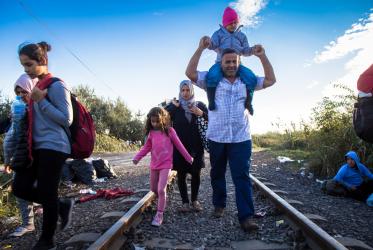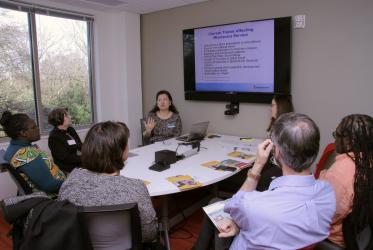Displaying 201 - 220 of 405
In Lebanon, refugees face hardship - but find hope
16 March 2017
Church leaders unite their voices against modern slavery
09 February 2017
Strong bridges needed more than ever
21 December 2016
Church in German state is a partner for refugees and society
20 December 2016
Seminar explores music as bridge between cultures
24 November 2016
Reformation commemoration "day of great joy,” says WCC leader
03 November 2016







